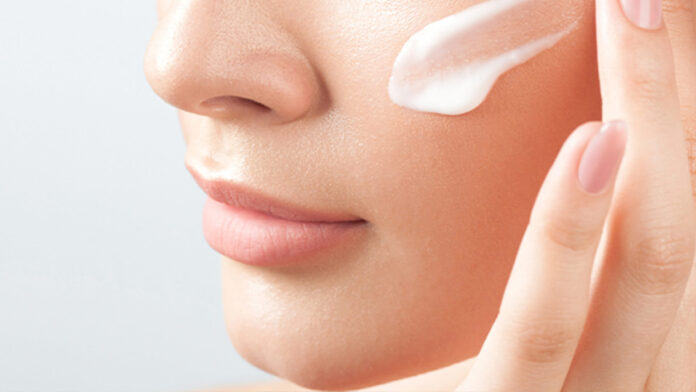
Embarking on a new skincare routine is an exciting endeavor that can transform the health and appearance of your skin. However, with the myriad of skin care products and techniques available, it’s essential to approach this journey with knowledge and a well-rounded strategy.
Here are some tips to consider when starting a new skincare routine. By following these guidelines, you can establish an effective regimen that promotes a healthy, radiant complexion.
1. Understand Your Skin Type
Before diving into a new skincare routine, it’s crucial to understand your skin type and needs. There are four common skin types: oily, dry, a combination of both, and sensitive. Each type requires specific care and products.
To identify your skin type, observe how your skin behaves throughout the day, paying attention to oiliness, dryness, and sensitivity. Knowing your skin type will help you choose appropriate products that cater to your unique needs.
2. Cleanse Gently and Regularly

Cleansing forms the foundation of any skincare routine. Try to find a gentle cleanser appropriate for your skin. It’s best to use it twice a day, in the morning and evening – this is to remove dirt, oil, and impurities that have built up.
Avoid harsh soaps or cleansers that can strip away natural oils and disrupt the skin’s balance. Opt for cleansers formulated for your specific skin type to ensure effective yet gentle cleansing.
3. Exfoliate Regularly
Exfoliation is using a harsher product to remove dead skin cells from your skin, generally revealing a fresher complexion. Incorporate exfoliation into your routine but be mindful not to overdo it. Over-exfoliation can lead to irritation and sensitivity. Instead, choose a gentle exfoliator suitable for your skin type and limit exfoliation to once or twice a week. This helps to unclog pores, smooth the skin’s texture, and improve overall skin health.
4. Hydrate Your Skin
Hydration is vital for maintaining healthy skin. So make sure to take some time to select the right moisturizer for your skin. It should be suitable to apply daily. Apply your moisturizer to slightly damp skin to lock in that hydration. This will help because moisturizers help to replenish moisture, improve skin elasticity, and create a protective barrier against environmental aggressors.
Of course, if you really want to improve the health of your skin, you might want to consider engaging with a professional service – such as dermani Medspa – which could help you massively boost your skin health. After all, these companies offer high-quality cosmetic services, such as skin rejuvenation, performed by experts in skincare.
5. Protect Your Skin from the Sun

Sun protection is a vital element of any skincare routine. UV rays can damage the skin, leading to premature aging, dark spots, and an increased risk of skin cancer. Always remember to apply sunscreen (SPF 30 at least) when you’re going out, even if it’s cloudy outside. Additionally, you should seek shade, wear protective clothing, and wear hats and sunglasses to minimize sun exposure to your skin.
6. Introduce Products Gradually
When starting a new skincare routine, introduce products gradually to allow your skin to adjust. Begin with the essentials—cleanser, moisturizer, and sunscreen—and give your skin time to adapt before incorporating additional products, such as serums or treatments. Introducing too many products at once can overwhelm the skin and make identifying potential irritants or allergens difficult.
A good way to screen for potential irritants is the patch test. Before fully incorporating a new skincare product into your routine, apply a small amount of the product to a discreet area, such as the inner forearm or behind the ear. Leave it on for 24 hours and monitor for any redness, itching, or irritation. If no adverse reactions occur, it should be safe to use.
7. Customize Your Routine
Every person’s skin is unique, so it’s essential to customize your skincare routine to address your specific concerns. Consider incorporating targeted treatments such as serums, masks, or spot treatments to address specific issues like acne, fine lines, or dark spots.
However, avoid overwhelming your skin with too many products. Focus on your key concerns and select products that are formulated to address those issues effectively rather than going for a broader technique.
8. Be Consistent

Consistency is key when it comes to skincare. Establish a regular routine and stick to it so you can get the results you want. What’s more, the regularity of your routine allows your skin to benefit from the active ingredients in the products and adapt to the routine over time.
Remember that skincare is a long-term commitment, and visible improvements will take time, so don’t give up if you don’t see immediate results – perseverance and consistency will always yield the best outcomes.
9. Practice Good Lifestyle Habits
While skincare products play a significant role in maintaining healthy skin, supporting your skincare routine with good lifestyle habits is important. Here are a few good examples to keep in mind:
- Get enough sleep, as lack of sleep can contribute to dull, tired-looking skin.
- Stay hydrated by drinking an adequate amount of water daily.
- Maintain a balanced diet rich in fruits and vegetables containing nutrients that support skin health, such as vitamins A, C, and E.
- Minimize stress levels, as stress can impact your skin’s appearance and exacerbate certain skin conditions.
10. Remove Makeup Properly
If you wear makeup, ensure you remove it thoroughly before cleansing your skin. Use a gentle makeup remover or micellar water to dissolve and remove makeup before proceeding with your regular cleansing routine. Leaving makeup on overnight can clog pores and lead to breakouts or skin congestion.
11. Listen to Your Skin

Your skin can provide valuable feedback about your skincare routine. Pay attention to how your skin looks and feels after using certain products. If you experience redness, irritation, or excessive dryness, it may be an indication that a particular product is not suitable for your skin. Adjust your routine accordingly, and if problems persist, consult a skin care professional for guidance.
12. Be Patient
Lastly, be patient with your skincare journey. Achieving healthy, radiant skin takes time and consistent effort. Don’t be discouraged by setbacks or slow progress. With a carefully customized skincare routine, you can gradually improve the health and appearance of your skin. Remember, skincare is a long-term investment in your overall well-being.






